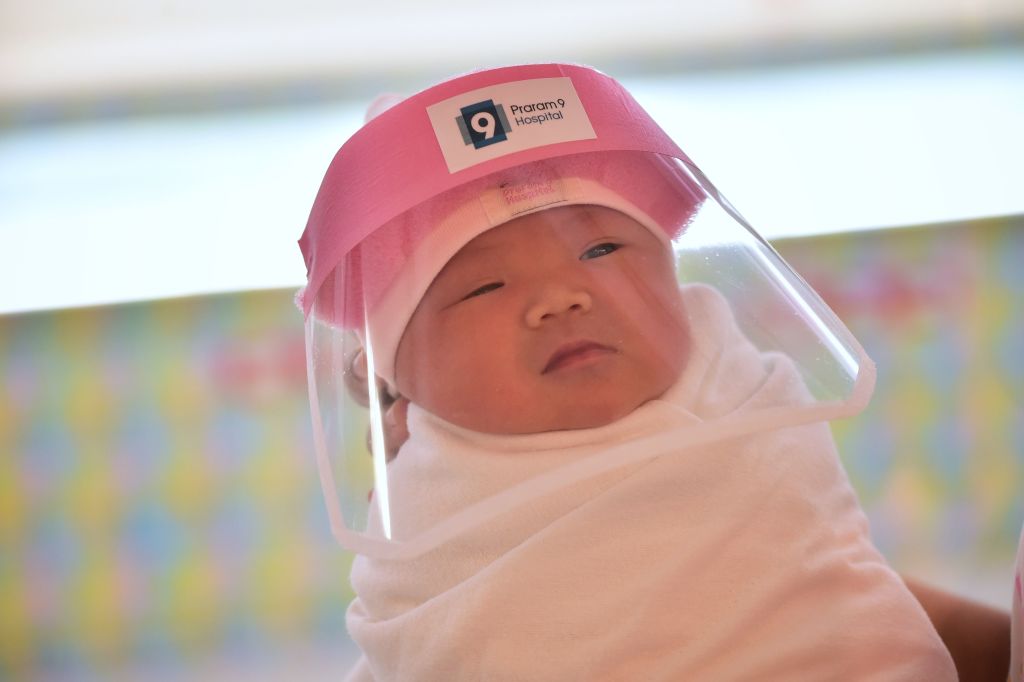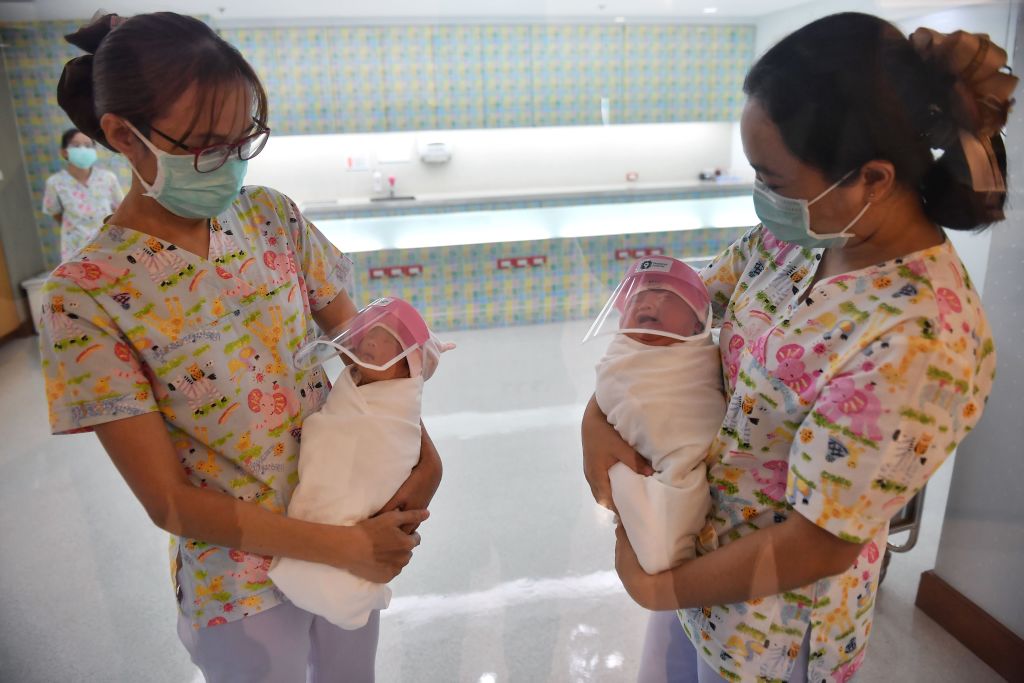Newborn babies in Thailand are being given miniature face shields to wear for protection against the novel coronavirus.

Babies born at a hospital in Thailand are being fitted with special masks to keep them safe from catching COVID-19, the disease caused by the virus. The masks are designed to stop droplets from sneezes or coughs from getting on the babies’ faces.
Turns out that on top of being useful, they’re pretty cute, too.
Bangkok’s Praram 9 Hospital shared a statement on its official Facebook page with a photo showing a nurse holding a baby while another worker slips a shield over its face.
“Safety is what we care about most,” the hospital writes in the statement.
The visors, BBC Thailand reports, provide new parents “peace of mind,” according to a translation by Buzzfeed.
The masks will not be worn all the time by the newborns. They’re mainly for transporting babies home from the hospital, BBC Thailand says.
As of Thursday, Thailand had more than 2,600 confirmed cases of COVID-19 and 46 deaths.
—
Questions about COVID-19? Here are some things you need to know:
Health officials caution against all international travel. Returning travellers are legally obligated to self-isolate for 14 days, beginning March 26, in case they develop symptoms and to prevent spreading the virus to others. Some provinces and territories have also implemented additional recommendations or enforcement measures to ensure those returning to the area self-isolate.
Symptoms can include fever, cough and difficulty breathing — very similar to a cold or flu. Some people can develop a more severe illness. People most at risk of this include older adults and people with severe chronic medical conditions like heart, lung or kidney disease. If you develop symptoms, contact public health authorities.
To prevent the virus from spreading, experts recommend frequent handwashing and coughing into your sleeve. They also recommend minimizing contact with others, staying home as much as possible and maintaining a distance of two metres from other people if you go out.
For full COVID-19 coverage from Global News, click here.
—






Comments